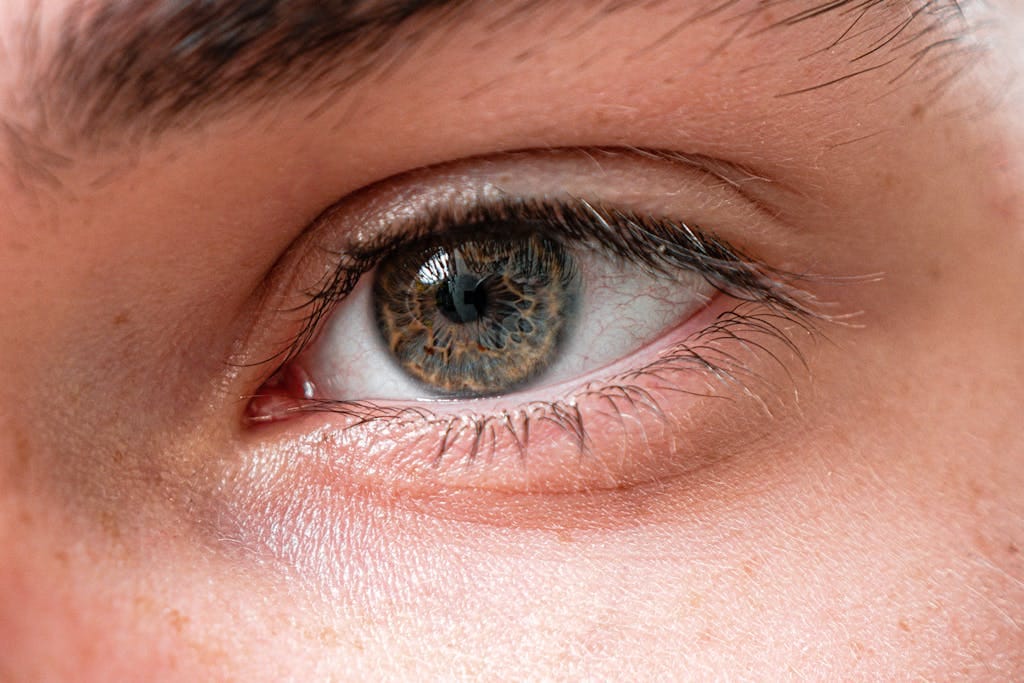FREE SHIPPING OVER $50
Improve Your Vision Naturally: 6 Essential Vitamins and Supplements for Eye Health
Let’s face it—our eyes work hard. From scrolling on smartphones to squinting at screens all day, modern life isn’t exactly kind to our vision. But what if you could strengthen your eyes naturally and protect them from age-related decline? The secret lies in the right nutrients. In this article, we’ll break down the 6 essential vitamins and supplements for eye health, backed by science and recommended by optometrists. Whether you’re dealing with dry eyes, blurry vision, or just want to keep your sight sharp for years to come, these nutrients can make a real difference. No gimmicks, no hype—just what actually works.
Why Nutrition Matters for Eye Health

Before we dive into the list, let’s talk about why what you eat (or supplement) affects your vision:
- Fights Oxidative Stress: Your eyes are exposed to light and environmental toxins daily, leading to free radical damage. Antioxidants help neutralize this threat.
- Supports Retinal Function: Nutrients like lutein and omega-3s are critical for maintaining the retina’s structure and function.
- Prevents Dry Eyes: Vitamins A and D help maintain moisture and reduce irritation.
- Slows Age-Related Decline: AREDS2 studies show certain supplements can reduce the risk of macular degeneration by up to 25%.
Now, let’s get into the 6 essential vitamins and supplements your eyes need.
1. Vitamin A: The Vision Protector
What It Does: Vitamin A is crucial for low-light vision (hello, night driving!) and maintaining a healthy cornea.
Best Sources:
- Sweet potatoes
- Carrots
- Spinach
- Liver (for the adventurous)
Why It Works:
- Converts light into electrical signals for the brain.
- Prevents dry eyes and corneal ulcers.
Pro Tip: Pair with healthy fats (like olive oil) for better absorption.
2. Lutein & Zeaxanthin: The Dynamic Duo
What They Do: These carotenoids act as natural blue light filters, protecting your retina from screen-induced damage.
Best Sources:
- Kale
- Eggs (especially the yolks)
- Corn
- Orange peppers
Why They Work:
- Concentrate in the macula, shielding it from harmful light.
- Studies show they can improve contrast sensitivity and reduce glare issues.
Pro Tip: Aim for at least 10 mg of lutein and 2 mg of zeaxanthin daily.
3. Omega-3 Fatty Acids: The Dry Eye Solution
What They Do: Omega-3s (DHA and EPA) reduce inflammation in tear glands, keeping eyes lubricated.
Best Sources:
- Fatty fish (salmon, sardines)
- Flaxseeds
- Walnuts
- Algal oil (vegan option)
Why They Work:
- A study found omega-3s reduced dry eye symptoms by 30%.
- Supports retinal cell membranes for sharper vision.
Pro Tip: Look for supplements with a 3:1 ratio of EPA to DHA.
4. Vitamin C: The Antioxidant Powerhouse
What It Does: Protects against UV damage and supports collagen in the cornea.
Best Sources:
- Citrus fruits
- Bell peppers
- Strawberries
- Broccoli
Why It Works:
- Regenerates other antioxidants (like vitamin E).
- Lowers cataract risk by up to 33%, per research.
Pro Tip: Avoid high-dose supplements if prone to kidney stones.
5. Zinc: The Gatekeeper of Eye Health
What It Does: Helps transport vitamin A from the liver to the retina to produce melanin, a protective pigment.
Best Sources:
- Oysters
- Pumpkin seeds
- Beef
- Chickpeas
Why It Works:
- Critical for the AREDS2 formula (proven for macular degeneration).
- Deficiency linked to poor night vision.
Pro Tip: Pair with copper (2 mg copper per 50 mg zinc) to avoid imbalance.
6. Vitamin E: The Cellular Shield
What It Does: Protects eye cells from oxidative damage, particularly in the lens and retina.
Best Sources:
- Almonds
- Sunflower seeds
- Avocado
- Spinach
Why It Works:
- Slows progression of age-related eye diseases.
- Works synergistically with vitamin C for maximum protection.
Pro Tip: Natural vitamin E (d-alpha-tocopherol) is better absorbed than synthetic forms.
The AREDS2 Formula: A Special Mention
If you’re at high risk for macular degeneration, ask your eye doctor about the AREDS2 supplement formula, which combines:
- Vitamin C (500 mg)
- Vitamin E (400 IU)
- Lutein (10 mg)
- Zeaxanthin (2 mg)
- Zinc (80 mg)
- Copper (2 mg)
Note: This isn’t for everyone—consult a professional first.
How to Incorporate These Nutrients
For Food-First Approach:
- Breakfast: Spinach omelet with orange peppers (lutein + vitamin C).
- Lunch: Salmon salad with walnuts (omega-3s + vitamin E).
- Snack: Carrot sticks with hummus (vitamin A + zinc).
- Dinner: Sweet potato and kale sauté (vitamin A + lutein).
For Supplementation:
- Choose a high-quality eye health multivitamin.
- Look for third-party testing (NSF, USP).
- Avoid megadoses unless prescribed.
What to Avoid for Eye Health
- Excess Sugar: Linked to diabetic retinopathy.
- Processed Foods: Often lack eye-friendly nutrients.
- Smoking: Doubles risk of macular degeneration.
- Dehydration: Worsens dry eye symptoms.
When to See an Eye Doctor
While nutrition helps, these symptoms need professional attention:
- Sudden vision changes
- Persistent floaters or flashes
- Eye pain or redness
- Difficulty seeing at night despite supplements
Final Thoughts
Your eyes are irreplaceable—and with the right nutrients, you can improve your vision naturally and protect against age-related decline. Focus on these 6 essential vitamins and supplements, eat a colorful diet, and pair them with regular eye check-ups. Small, consistent steps today can lead to clearer, healthier vision for years to come.
Related Articles
- Night Driving Got You Nervous? 7 Expert Tricks to See Better After Dark
- Allergy Eye Drops Explained: Pataday, Visine, Similasan, and More for Quick Relief
- The Cheap Daily Supplement That’s Boosting Brainpower in Older People
- This Vitamin Could Be the Key to Living Longer—Here’s What Scientists Found
- 5 Supplements Pharmacists Avoid at All Costs—Here’s Why







